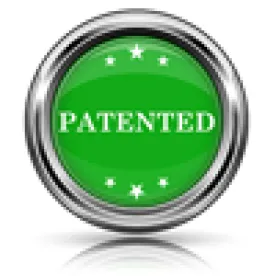Biogen MA, Inc. v. Japanese Foundation for Cancer Research
Addressing the impact of the America Invents Act (AIA) on judicial review of interference proceedings, the U.S. Court of Appeals for the Federal Circuit confirmed that a district court may not review Patent Trial and Appeal Board (PTAB or Board) decisions under 35 U.S.C. § 146 for interferences filed after September 2012. Biogen MA, Inc. v. Japanese Foundation for Cancer Research, Case No. 2014-1525 (Fed. Cir., May 7, 2015) (Dyk, J.).
This case arises out of an interference between Biogen and the Japanese Foundation for Cancer Research (JFC), where the Board estopped Biogen from continuing an interference based on the results of two earlier interferences between the same parties. Biogen challenged the Board’s determination in district court under pre-AIA 35 U.S.C. § 146. The district court, however, dismissed Biogen’s case for lack of subject-matter jurisdiction, holding that the AIA eliminated its § 146 jurisdiction to review decisions from interference proceedings declared after September 15, 2012. The district court then transferred the case to the Federal Circuit for review.
The Federal Circuit first reviewed the threshold question of whether it even had jurisdiction to review the district court’s decision. After concluding that such jurisdiction existed, the Federal Circuit turned to the substance of the district court’s jurisdictional analysis. Under pre-AIA law, parties had two avenues for review of decisions in interference proceedings. Under pre-AIA § 146, a party could challenge the Board’s decision in district court, while under 35 U.S.C. § 141, a party could appeal the Board’s decision to the Federal Circuit. These were alternative options, meaning that by choosing one option a party waived recourse to the other. As the Federal Circuit explained, if review under §146 were proper, then Biogen would have waived its right to review under § 141, and the Federal Circuit would not have subject-matter jurisdiction over the action. Thus, the key question on appeal was whether the AIA eliminated judicial review under § 146.
Biogen’s argument was based on AIA § 3(n)(1), which generally states that the new AIA provisions apply only to applications with an effective filing date on or after March 16, 2013. Biogen argued that because this provision does not expressly carve out judicial review of interference proceeding, it “implicitly preserves interference proceedings and judicial review provisions concerning interference proceedings for patent applications filed before March 16, 2013, including § 146 review for Board decisions in interferences.”
The Federal Circuit did not agree, noting that the AIA included other provisions related to judicial review of interferences (§ 6(f)(3)(C)), which state that interferences filed before September 16, 2012 were still amenable to review under pre-AIA § 141 or 146. Originally, that provision did not explicitly provide for judicial review of interferences filed after September 15, 2012. But Congress corrected this omission, stating that judicial review under §141 was permissible for decisions in interferences filed after September 15, 2012. According to the Federal Circuit, viewing the plain language of AIA § 6(f)(3)(C) together with the congressional modification, and applying the canon of construction that the specific trumps the general, makes clear that pre-AIA § 146 review was eliminated for interference proceedings declared after September 15, 2012. For these reasons, the Federal Circuit concluded that it had jurisdiction to hear Biogen’s appeal under § 141 and proceeded to review the merits of the PTAB decision.
On the merits, the Federal Circuit affirmed the Board’s decision, finding that Biogen was estopped from establishing priority in the interference at issue because of interference estoppel. In particular, Biogen had already lost in two other interference actions that related to similar subject matter and did not meet its burden to show patentable distinctness in response to the Board’s show cause order.




 />i
/>i

